
The Temptations is an American vocal group formed in Detroit, Michigan in 1960 as The Elgins, known for their string of successful singles and albums with Motown from the 1960s to the mid-1970s. The group's work with producer Norman Whitfield, beginning with the Top 10 hit single "Cloud Nine" in October 1968, pioneered psychedelic soul, and was significant in the evolution of R&B and soul music. The group members were known for their choreography, distinct harmonies, and dress style. Having sold tens of millions of albums, the Temptations are among the most successful groups in popular music.
"Psychedelic Shack" is a 1969 single for the Motown label performed by the Temptations and produced by Norman Whitfield. It became a hit single in 1970.

Psychedelic Shack is the twelfth studio album by The Temptations for the Gordy (Motown) label released in 1970. Completely written by Norman Whitfield and Barrett Strong and produced by Whitfield, Psychedelic Shack almost completely abandoned the "Motown Sound" formula, instead delving fully into psychedelia. Along with the hit title track, the album also features the group's original version of "War", which became a major hit for Edwin Starr later in 1970.
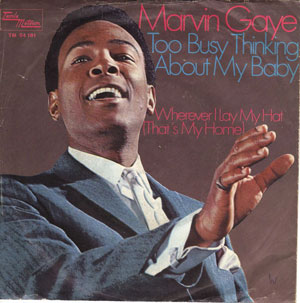
"Too Busy Thinking About My Baby" is a Motown song written by Norman Whitfield, Barrett Strong, and Janie Bradford. The song was first recorded by The Temptations as a track on their 1966 album Gettin' Ready. Eddie Kendricks sings lead on the recording, which was produced by Whitfield. Jimmy Ruffin also recorded a version with The Temptations providing background vocals in 1966. It remained unreleased until 1997.
"That's the Way Love Is" is a 1967 Tamla (Motown) single recorded by The Isley Brothers and produced by Norman Whitfield.
"(I Know) I'm Losing You" is a 1966 hit single recorded by the Temptations for the Gordy (Motown) label, written by Cornelius Grant, Eddie Holland and Norman Whitfield, and produced by Norman Whitfield.

Sky's the Limit is the fourteenth studio album by the Temptations, released in 1971 through Gordy Records. The album includes the #1 hit "Just My Imagination ", the Top 40 hit "Ungena Za Ulimwengu ", and the original version of "Smiling Faces Sometimes", later a Top 5 hit for The Undisputed Truth.
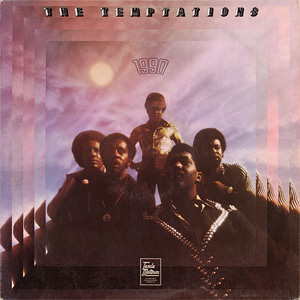
1990 is a 1973 album by The Temptations for the Gordy (Motown) label, their final LP written and produced by Norman Whitfield.

Solid Rock is the fifteenth studio album by The Temptations for the Gordy (Motown) label, produced by Norman Whitfield. The LP was the first made primarily without founding members and original lead singers Eddie Kendricks and Paul Williams. Frustrated by conflicts and fights with Temptations Otis Williams and Melvin Franklin, and producer Whitfield's steadfast insistence on producing psychedelic soul for the group when they really wanted to sing ballads, Kendricks had quit the act and negotiated a solo deal with Motown's Tamla label.

"Superstar (Remember How You Got Where You Are)" is a 1971 hit single for the Gordy (Motown) label, recorded by The Temptations and produced by Norman Whitfield. Something of an early ancestor to the "diss songs" prevalent in hip hop music towards the end of the 20th century, "Superstar" is an attack at two former Temptations members, David Ruffin (who had been fired back in 1968) and Eddie Kendricks (who quit the act in early 1971 and negotiated a Motown solo deal). The song appears on the 1972 album Solid Rock.
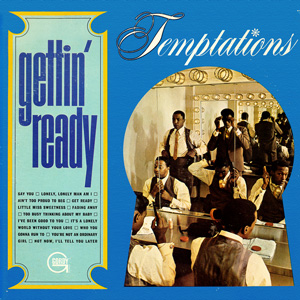
Gettin' Ready is the fourth studio album by The Temptations for the Gordy (Motown) label released in 1966. It marks the transition of the group from having Smokey Robinson as its main producer, with new producer Norman Whitfield taking over Robinson's position. Two #1 R&B hit singles, one from each producer, are included: "Get Ready" from Robinson with Eddie Kendricks on lead, and "Ain't Too Proud to Beg" from Whitfield with David Ruffin on lead. Also included is the original version of "Too Busy Thinking About My Baby," which would be rerecorded as a hit for Marvin Gaye in 1969. The album was also one of the last albums to contain tracks co-authored by members of the group until the release of The Temptations Do The Temptations (1976). As with previous Temptations albums, several songs are written by members of The Miracles: Smokey Robinson, Bobby Rogers, Pete Moore, Ronnie White, and Marv Tarplin.
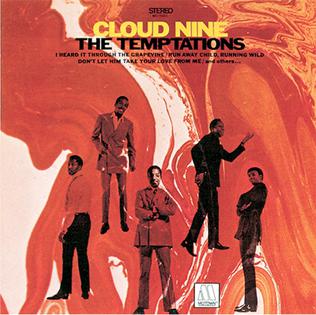
Cloud Nine is the ninth studio album by American musical group The Temptations for the Gordy (Motown) label released in 1969.
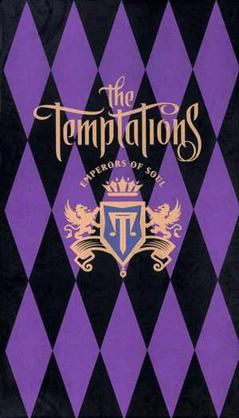
Emperors of Soul is a 1994 box set compilation for The Temptations, released by Motown Records. The five-disc collection covers the Temptations' entire four-decade history, from the first recording of The Distants in 1959 to four new recordings by the then-current Temptations lineup of Ali-Ollie Woodson, Theo Peoples, Ron Tyson, and stalwart members Otis Williams and Melvin Franklin.

Lost and Found: You've Got To Earn It (1962–1968) is a compilation album by The Temptations. Released by Motown Records in 1999, it includes twenty previously unreleased Temptations records alongside previously unreleased mixes of "Ain't Too Proud to Beg" and "You've Got to Earn It". Most of the songs were recorded during the group's "Classic 5" era with David Ruffin and Eddie Kendricks as lead singers, although there are some tracks present which were recorded with Ruffin's predecessor, Elbridge Bryant, in the lineup. There's also one track that was recorded with Ruffin's successor, Dennis Edwards.

"Cloud Nine" is a 1968 hit single recorded by The Temptations for the Motown label. It was the first of their singles to feature Dennis Edwards instead of David Ruffin in the lineup, was the first of producer Norman Whitfield's psychedelic soul tracks, and won Motown its first Grammy Award. The song was written by Whitfield and former Motown artist Barrett Strong.
"(Loneliness Made Me Realize) It's You That I Need" is a 1963 song that became a 1967 hit single recorded by the Temptations for the Gordy (Motown) label, produced and co-written by Norman Whitfield. Billboard described the single as a "groovy rocker" that "is loaded with excitement and another top vocal workout."
"Everybody Needs Love" is a 1964 Motown song by Norman Whitfield and Edward Holland, Jr. The first version released was by The Temptations for their album The Temptin' Temptations in 1965, but the most successful version was on a single by Gladys Knight & the Pips, which peaked at #39 on the Billboard Hot 100 chart, and #3 on the Billboard R&B singles chart, in 1967. Other Motown acts that recorded this song were Mary Wells, which featured Eddie Kendricks of The Temptations in the background, Jimmy Ruffin, The Velvelettes, and The Miracles. All versions of the song were produced by Whitfield.
"How Can I Forget" was originally recorded as a love ballad by Motown group The Temptations in 1968 and was re-recorded in a psychedelic soul/funk styling by fellow Motown artist, Marvin Gaye in 1969. His version, released on Motown's first subsidiary, Tamla, became a modest hit that almost reached the Top 40 of the pop charts while peaking at number-eighteen on the Hot Selling Soul Singles chart in 1970. Marvin's recording was featured on his That's the Way Love Is album. The song is also notable for being one of the shortest recordings for both The Tempts and for Gaye; recorded when most songs are over three minutes, its length is just under two.
"Farewell My Love" is a 1963 single by The Temptations for the Gordy (Motown) label. It was the last single that was written and produced by Motown president Berry Gordy for well over a decade, and the last released during the period of the "Original 5" lineup. It is also noted as the group's last single to miss the Billboard pop chart's Top 40 until 1971's "It's Summer". Up until now the group was jokingly referred to at this time as the "Hitless Temptations" by the Motown staff, much like their "sister" group, The Supremes, were called the "no-hit Supremes". However, their next single, the Smokey Robinson-produced "The Way You Do the Things You Do", would reach the Top 20 of the U.S. pop chart, breaking the group's streak of being "hitless".
"Just One Last Look" is a 1966 song written and produced by Motown's main production team Holland–Dozier–Holland, and recorded by The Temptations for the Gordy (Motown) label, and The Four Tops for the main Motown label. Intended for release as a single for both, it was blocked from doing so and shelved.











